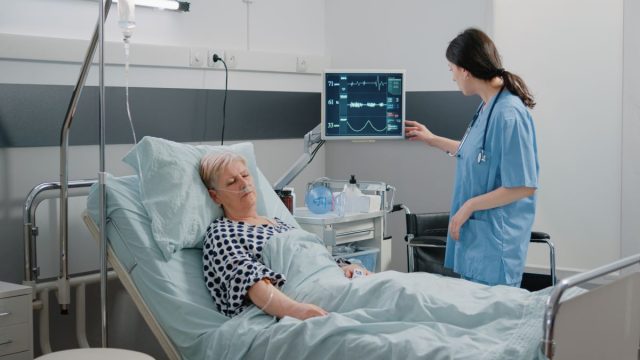However, no difference seen for care guided by C-reactive protein measurement
By Lori Solomon HealthDay Reporter
MONDAY, Dec. 16, 2024 (HealthDay News) — Sepsis care guided by measurement of procalcitonin (PCT) reduces antibiotic duration safely compared with standard care, according to a study published online Dec. 9 in the Journal of the American Medical Association to coincide with the Critical Care Reviews Down Under meeting, held from Dec. 10 to 11 in Melbourne, Australia.
Paul Dark, M.D., Ph.D., from the University of Manchester in the United Kingdom, and colleagues assessed whether decisions based on assessment of C-reactive protein (CRP) or PCT safely results in a reduction in the duration of antibiotic therapy. The analysis included 2,760 critically ill adults with suspected sepsis requiring critical care (41 units) within 24 hours of initiating intravenous antibiotics for suspected sepsis and likely to continue antibiotics for at least 72 hours. Patients were assigned to the daily PCT-guided protocol (918 patients), the daily CRP-guided protocol (924 patients), or standard care (918 patients).
The researchers found a significant reduction in antibiotic duration from random assignment to 28 days for those in the daily PCT-guided protocol versus standard care (mean duration, 10.7 days for standard care and 9.8 days for PCT). The daily PCT-guided protocol was noninferior to standard care for all-cause mortality up to 28 days, where the noninferiority margin was set at 5.4 percent (19.4 percent for standard care; 20.9 percent for PCT). Compared with standard care, there was no difference in antibiotic duration for the daily CRP-guided protocol (mean duration, 10.6 days for CRP). Inconclusive results were seen for all-cause mortality with the daily CRP-guided protocol compared with standard care (21.1 percent for CRP; absolute difference, 1.69).
“It is likely that the differential clinical effectiveness findings for daily PCT-guided and daily CRP-guided protocols are explained by the differences in the utility of these biomarkers to track inflammation caused by bacterial infection in the setting of critical illness, where PCT concentrations are known to increase earlier and normalize more rapidly than CRP in response to treatment,” the authors write.
Several authors disclosed ties to the pharmaceutical and biotechnology industries.
Copyright © 2024 HealthDay. All rights reserved.



















